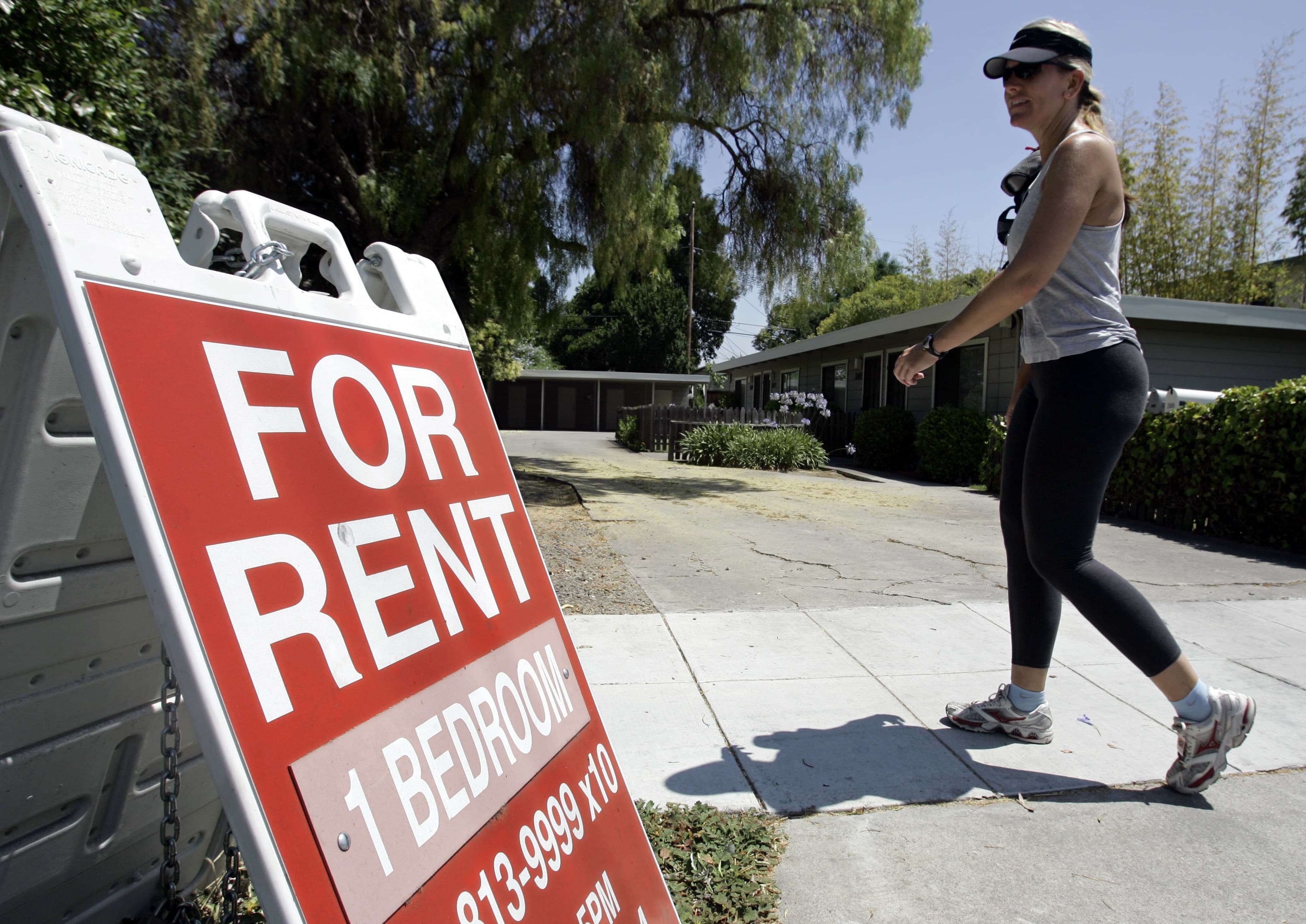A woman walks next to a “For Rent” sign at an apartment complex in Palo Alto, California.
Paul Sakuma | AP
Rent is traditionally due on the first of the month, and more tenants are becoming late on their payments.
The economic effects of Covid-19 continue to mount, with rising job losses and falling consumer confidence. As of April 26, 91.5% of renters in professionally managed buildings had made full or partial payments. That compares with 95.6% during the same period last year, according to the National Multifamily Housing Council.
“It is encouraging that apartment residents continue to meet their rent obligations whether that’s with the support of the federal relief funds, credit cards and alternative, flexible options provided by the industry’s owners and operators,” said NMHC President Doug Bibby. “But their financial security is unclear as many may not qualify for federal relief, while others are drawing down savings and facing greater financial challenges, including higher health-care costs.”
Walker & Dunlop is one of the nation’s largest commercial lenders with a $95 billion servicing portfolio, largely consisting of multifamily apartment buildings. There are more than 2 million apartment units in its portfolio, and CEO Willy Walker says his people are in contact with apartment owners and operators daily. So far, he said, just 1% of owners have asked for help on their commercial loans, but Walker is a realist.
“One of the big things that many of our borrowers are doing is going out, talking to their tenants, and anyone who does have a need for rental forbearance … they’re putting in repayment plans,” he said, but added: “Quite honestly, it’s a waiting game to see what May and June and July rent roles look like, as it relates to how many loans come to us for forbearance and then what defaults look like come September, October, November.”
Walker is concerned that when the temporary boost to unemployment payments under the government’s coronavirus relief program end, more tenants will be unable or unwilling to put down money for housing.
“The real question is are they going to pay their rent, or are they going to hoard cash because they think the benefits in the CARES Act are going to term out on them, and they need to hold onto that money?” asked Walker.
While landlords for both multi- and single-family properties are trying to work with their tenants, offering temporary rent reductions and repayment plans, there is no government bailout for renters. There is a forbearance plan for mortgage borrowers under the CARES Act, allowing them to delay payments for up to a year. For renters, the act forbids evictions for 90 days, but little else.
Activists are now calling for a national rent strike, mobilizing with the slogan #CancelRent.
“Real estate titans made money off of our pain in 2008, and have continued getting tax breaks ever since,” said Alex Caputo-Pearl, president of the United Teachers Los Angeles union, which is supporting the rent strike, in a release. ”We can’t let this happen again. We’re calling on every level of government to use emergency powers to cancel rent, and organize a massive effort at the federal level to redistribute wealth.”

